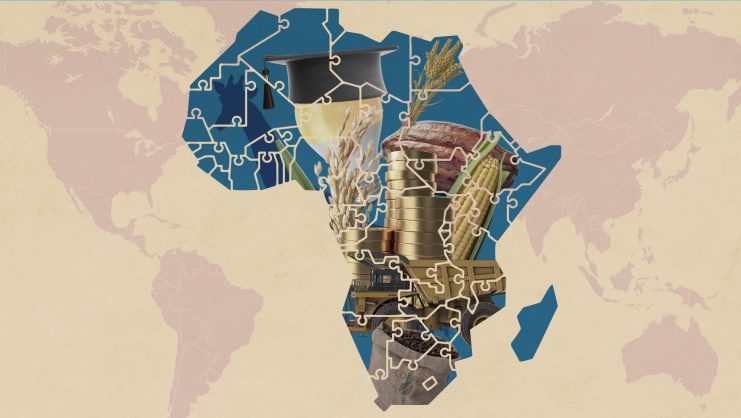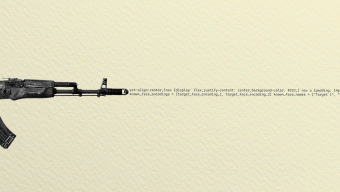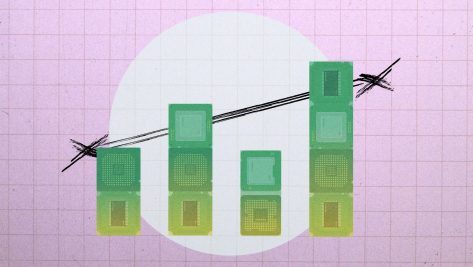William Dávila: The space industry will be a driver of growth in the coming years, thanks in part to NewSpace initiatives. Private companies and entrepreneurs are forging ahead in a new space race. Where does OffWorld fit into this picture?
James Murray: We founded this company two and a half years ago with the aim of preparing other worlds for human industrial civilization. We are developing an intelligent, autonomous, robotic workforce that will enable us to achieve this goal. I am convinced that this technology will benefit everyone here on Earth.
That’s really our calling. We’ve been working in this direction for more than 20 years. At OffWorld, we are convinced that human beings at the dawn of the 21st century are on the brink of becoming a universal species. We are working on various aspects of this challenge, including transportation and all the things we will need when we reach our faraway destinations.
One peculiar aspect of investigating technology to build colonies on other planets is that this innovation will also be very useful for solving problems here on Earth.
William Dávila: Speaking of faraway destinations, why do you feel it is important to go to space when there are still so many challenges and so many new opportunities to explore here on Earth?
James Murray: We now have a new frontier. Over the centuries, humans have occupied extreme environments all over the Earth, finding ways to adapt and make a living in every corner of the globe. This restlessness is part of what it means to be human, so it’s only natural that we will eventually go into space. There are countless explanations: we’re curious, we want to expand, we want to explore. But we also expect that the journey beyond our atmosphere will yield remarkable new discoveries—things we never imagined could exist, things that will benefit all of humanity.
William Dávila: Let’s talk a little more about the ways in which these advances will benefit all of humanity. For more traditional sectors and industries, what new business opportunities will be opened up by space exploration?
James Murray: One peculiar aspect of investigating technology to build colonies on other planets is that this innovation—this workforce of industrial robots—will also be very useful for solving problems here on Earth. This is where short-term business opportunities come into play. These robots will be very valuable for improving our quality of life and the business of industrial civilization.
There’s no point in going to space without a development plan. We have to get the technology right, and we’ve got plenty of time to practice here on Earth.
William Dávila: Some of the technologies being developed for this space race will also be useful in other fields. Which technologies do you think have the most crossover potential?
James Murray: We should distinguish between companies that develop space technology—which is clean, sophisticated, and very advanced—and companies like OffWorld, which develop innovations for space settlement. Settlement is somewhat less glamorous: it involves mining, construction, industrial processes, and so on. But this is the stuff that we need to survive on other worlds. The idea is to send this sort of capability to the surface of the Moon, or to Mars, or to asteroids. This is a complex challenge, but it’s essential as a starting point.
William Dávila: Lately we’ve been hearing a lot about Mars as a short-term goal and rather less about the Moon. Do you think the Moon should be a part of any future space plan? And, relatedly, why should we explore Mars?
James Murray: It could be the Moon or Mars—it largely depends on which planet is in fashion at any given moment. In any case, there are certain strategic reasons why the Moon is the best choice right now. The Moon is like a base camp or a filling station—a place where we can acquire lots of useful materials. The discovery of water 25 years ago is another key factor. If you have water, you also have oxygen and hydrogen. This means that you can grow food and process whatever materials may be present on the lunar surface—for example, titanium and iron.
As for Mars, we’ll eventually get there. It’s a bigger planet with a reasonable atmosphere—although not dense enough to sustain life. Mars would be the natural second or third step in human expansion. Over the next hundred or two hundred years, industrial civilization will expand throughout the solar system.
William Dávila: In any case, the preparations are more complex for Mars than for the Moon, although Mars does have certain resources that make it very attractive…
James Murray: The Moon is relatively close, so we can actually get there quite quickly. The better we prepare our capabilities here on Earth, the faster we’ll be able to go. There’s no point in going somewhere without a development plan. We have to get the technology right, and we’ve got plenty of time to practice here on Earth.
Putting solar panels into orbit is a way to gather energy and transmit it down to Earth to complement all the renewable-energy initiatives now being put in place.
William Dávila: As you mentioned before, the Moon offers certain important resources, although some asteroids are also home to various materials of interest. Can we use the same technologies to take advantage of these resources in both cases?
James Murray: With the technology currently available, mineral extraction is a relatively simple activity. The difficulty depends largely on where you decide to go—to the lunar surface, or to a particular asteroid. There are many different types of asteroids. Some contain volatiles such as water. Some are pure metal. Others are like a desert—full of sand. Ultimately, the technique used will depend on the specifics of the mission.
William Dávila: As competition has grown in the space industry, the cost of sending payloads into space has fallen. What other sectors could be affected by this decrease in costs?
James Murray: One of the interesting aspects of colonizing space is that it leads to developments that benefit civilization here on Earth. It makes no sense to send someone into space unless we get something in return. These missions have to have some value. Right now, one of the biggest values is the ability to gather energy from orbit and transmit it down to Earth to complement all the renewable-energy initiatives now being put in place. This is a relatively simple step towards weaning ourselves off our dependence on fossil fuels, which is a problem that we absolutely must solve this century.
James Murray is a co-founder of OffWorld, a company dedicated to developing the first generation of autonomous robots that will lay the groundwork for a sustainable presence on the Moon, Mars, and many asteroids as an extension of our activities here on Earth.
© IE Insights.











